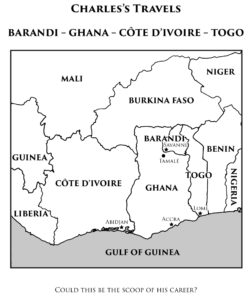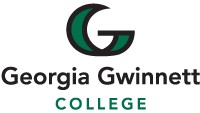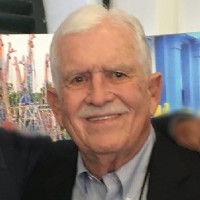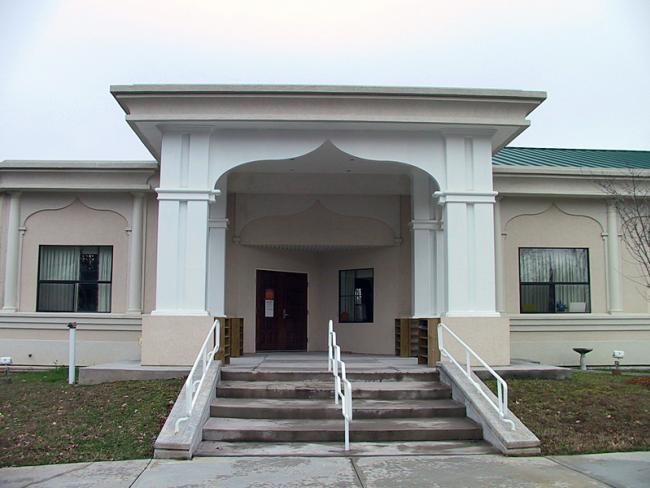GwinnettForum | Number 21.14 | Feb. 19, 2021
ROAD IMPROVEMENTS are coming to the intersection of Bush Road and Medlock Bridge Road in Peachtree Corners. This detailed outline shows the improvements, which are expected to cost $1.2 million. Vertical Earth Inc. of Cumming was low bidder on the project. Work is expected to be completed in the fall of 2021.
 TODAY’S FOCUS: How about Georgia’s electrical grid? Is it ready for weather?
TODAY’S FOCUS: How about Georgia’s electrical grid? Is it ready for weather?
EEB PERSPECTIVE: Duluth author pens novel about business practices in part of Africa
ANOTHER VIEW: In some situations, it’s time to remember your Southern accent
SPOTLIGHT: Renasant Bank
FEEDBACK: Liked rant on handicapped parking; now about loud exhausts!
UPCOMING: GGC, Clayton State agreement allows seamless transition
NOTABLE: Walton EMC allocates $290,065 in grants to schools
RECOMMENDED: The Man Who Was Thursday
GEORGIA TIDBIT: Jain temple in Metro Atlanta is located in Norcross
MYSTERY PHOTO: Distinctive photo might not be a mystery to some
How about Georgia’s electrical grid? Is it ready for weather?
(Editor’s note: With heavy winter weather causing havoc and electrical blackouts in Texas, how about Georgia? Could Georgia have similar problems if low temperatures arrived? We asked Public Service Commissioner Tim Echols of Athens to comment on the state situation. –eeb)
By Tim Echols
ATHENS, Ga. | In the energy world that I live in as a Georgia Public Service Commissioner (PSC), Texas has it all. Oil and gas reserves, great sun for solar, legacy coal and gas plants, nuclear units, and the best wind corridor in the United States.
They even have their own unique grid and grid operator—ERCOT. But this frigid February week, Mother Nature humbled the Lone Star State. And my constituents are asking if this could happen to us in Georgia?
Never say never, but Georgia’s situation is very different from Texas. First, we are still a “regulated” state. That means that the entire distance from the power plant to the meter behind your house, the power company, with PSC oversight, is responsible and has complete control of ensuring reliability.
Like most states, Georgia asks its utilities to do reserve margin studies and plan for the worst event that could happen in any given decade. ERCOT—the Electric Reliability Council of Texas—is a deregulated energy-only market. In Georgia, we have a winter planning reserve margin approaching 26 percent. In fact, the Georgia PSC reviewed the level of contingency in 2020, and allowed Georgia Power to substantially increase their planning strategy for moments just like Texas is experiencing.
As the snow started falling in Texas and temperatures dropped, people huddled at home and tried to stay warm. Energy demand spiked across a chilly Texas, but things started to go wrong on all energy platforms. There were unplanned outages from every fuel type: a pump broke at a nuclear power plant, wind turbines froze in place, natural gas flow to power plants was restricted because of heavy home usage, and equipment failed at coal plants. In other words, it was the imperfect storm.
Could this scenario happen in Georgia? Anything is possible, but not likely. The PSC, Georgia Power and the Southern Company study extreme weather, and adjust needs as necessary. Then, our Commission evaluates the utility’s proposals and makes the final judgement on strategies to insure the most feasible reliability.
This last happened in 2019 where a key winter reliability risk was identified during our triennial planning process. During this year-long strategic planning process, we look at reserve margin, policy changes on the horizon and emerging technology. These drivers included the narrowing of the difference between summer and winter weather-normal peak loads, higher volatility of winter peak demands relative to summer peak demands, cold-weather-related unit outages, the penetration of solar resources, increased reliance on natural gas; and market purchase availability.
The end results? Georgia Power got the go-ahead to make needed preparation. And based on what we had already learned from the 2014 Polar Vortex, an aggressive winterization program has already been established.
There is no doubt that if Georgia experienced single digit temperatures, especially for an extended period, it would have some impact. Throw in some freezing rain that brings down pine trees on power lines, and it would get worse.
But the planning that I and my colleagues do on the PSC, alongside our staff and the utilities, makes a difference. We’re not perfect, but we have a proven strategy. And once Texas digs out of this storm, I am sure Georgia and all states will draw on the lessons learned from their experience.
- Have a comment? Send to: elliott@brack.net
Duluth author pens novel about business in part of Africa
By Elliott Brack
Editor and Publisher, GwinnettForum
FEB. 19, 2021 | A first-time Duluth resident has just published Grand Lure: Africa, an exciting 393 page novel set in West Central Africa. The action takes place in four countries, Ghana, Togo, Barandi and Burkina Faso.
 The author’s name is Michel L’Aventure, but that’s a pen name. His real name is Michel Fraiz (“frake,” as pronounced in “brake”). He bases the book on his own real-life adventures in the West African countries.
The author’s name is Michel L’Aventure, but that’s a pen name. His real name is Michel Fraiz (“frake,” as pronounced in “brake”). He bases the book on his own real-life adventures in the West African countries.
The novel explains the unscrupulous ways business is often conducted there. While they are considered “democratic” countries, there is corruption everywhere, from people controlling neighborhoods to the state government. He says: “It’s routine to give crossing guards some gift.
It’s most helpful to have plenty of small-bill cash with you. You can never tell when someone from the lowest to the highest may need to have a hand crossed with money…for you to survive.”
The author still has French citizenship, though he has been living in the USA for 24 years. He came to the Atlanta area after meeting his future wife in 1993 when she, Jan Wroton, a Dekalb County fifth grade teacher, was on a tour to Europe. He was the tour director and bus driver. They have lived in Duluth since 1997.
His trip to Africa came in 2001. His business friend had Africans wanting to invest two million Euros with him, mainly to get the money out of Africa. But where did the money come from? Was it honest? He commissioned Michel to go to Africa to find out.
In many of these African nations a person must go through many people before transacting business. While often at the governmental level, sometimes it consists of working with several layers of private venturers, new-found friends, hangers-on, middlemen, and even goons, before business is transacted. Even when the business is completed, you may never know the real actors. Deception is prevalent, and watching your step is important.
Fraiz’ frustration grew over his inability to conduct business and to answer the question of the money’s origin.
 In the novel, the main character has become a wanted person, and must flee the country. But he cannot fly from an airport, since he is a marked man, mainly for raising too many questions.
In the novel, the main character has become a wanted person, and must flee the country. But he cannot fly from an airport, since he is a marked man, mainly for raising too many questions.
Then begins several harrowing experiences trying to get out of Africa. He makes this journey by conventionally leaving Togo for Ghana somewhat hidden (though the only white person) in a dilapidated bus. The older bus breaks down, delaying his escape. Then he hitches a ride by hanging onto a moped driver for an hour’s ride. The moped driver is also a pilot, so next he squeezes into a single-seat crop duster, for an hour’s flight (cost $180) across the border into Barandi. To cross the border into Burkina Faso, he must be a passenger in a transfer truck, hauling modern computer components.
This brings on the zaniest part of the trip, as a deserted part of the rough highway is a haven for truck hijackers. Soon the truck is set upon, with repeated gunshots being fired at the truck, and our hero injured from sprayed glass when the windshield is shot out. Finally, when another truck shows, the hijackers vamoose.
Shortly after, Catholic nuns, who are also doctors, offer a few days of medical treatment for our man. Then, amazingly, a jet airplane arrives to routinely re-supply the mission, and even has an empty seat for a trip back to France.
Whew!
The book is published by Mountain Arbor Press of Alpharetta, and is available at $16.99 from the web site, www.michellaventure.com or from Book Logix and Amazon.
- Have a comment? Send to: elliott@brack.net
In some situations, you remember your Southern accent
By Ross Lenhart
STONE MOUNTAIN, Ga. | A snowy day at Gablingen Army Airfield located outside of Augsburg, Bavaria, Germany in about 1964.
I was “Radar,” an aviation battalion commanding officer’s clerk, who, as an enlisted man, sometimes wielded more power than a second lieutenant. With the position came a nice office with a view of the airfield with the CO (a colonel) just located in his office behind me.
One snowy cold day in February, the Commanding General’s helicopter landed on the helipad just outside of my office. Of course, this aircraft always caught our attention. The ‘copter door opened and out jumped a civilian, an older gentleman. With the blades still twirling and with grey hair flying, this guy ended up standing directly in front of my desk.
And, damn, if I didn’t recognize him.
A little background here: I was born and raised in low country South Carolina, Summerville just north of Charleston. In my teens, we had moved to Fairfield County, Conn., to the town of Old Greenwich where a ninth grade teacher had knocked the southern accent right out of me.
Back to the airfield: standing in front of me shaking the snow off of his overcoat was Congressman Mendel Rivers of Charleston, who just happened to be the chairman of the Congressional Armed Services Committee, a position that deserved the clicked heels of any officer or enlisted man. I stood at attention, and reverted back to my native Lowcountry dialect, and said, “Congressman Rivers, welcome! It is cold out there. May I get you a cup of hot coffee, sir?”
And he said, “Mighty fine, son, that would be very nice.”
Behind me, I heard the door open and out popped our colonel with, “Lenhart, who the hell is this?” Now you have to realize that the Congressman did not look too presentable with his helicopter-roughed-up hair and all.
And I said, “Sir, I would like you to meet Congressman Mendel Rivers,” and in a whisper, “He’s the chairman of the Congressional Committee on Army Services.” The colonel looked the Congressman up and down, and exclaimed, “Lenhart, are you hustling me again?” (I guess that I had a reputation).
The Congressman, with a red face, answered, “Colonel, you need to learn some manners from your enlisted man here.” Turning to me, he asked: “Where you from, son?”
I forsook Connecticut, and mustered up my slowest southern drawl and said with a smile, “Sir, I am from Summerville, South Carolina.” He lit up and said laughing, “You’re one of my boys!” And I answered, “Yes sir, and my family has always appreciated the fact that you appointed my brother to Annapolis.”
Somehow standing there, we both realized that South Carolina Lowcountry folks can always find each other, even in the snow in Bavaria.
Meanwhile the colonel was nowhere to be seen.
Apparently the helicopter had merely stopped for refueling. The Congressman finished his coffee, and I walked him to the helicopter, and he was off.
Years later, living in Gwinnett County, my subdivision (Coopers Pond) was having a New Year’s Eve party. Just by pure coincidence, I met a person who turned out to be the colonel’s son, who had just moved in there. Two months later, the colonel came to visit his son. We had a reunion and we re-lived the story with a chuckle.
- Have a comment? Send to: elliott@brack.net
Renasant Bank
 The public spiritedness of our sponsors allows us to bring GwinnettForum.com to you at no cost to readers. Today’s sponsor is Renasant Bank, which has humble roots, starting in 1904 as a $100,000 bank in a Lee County, Miss. bakery. Since then, we have grown to become one of the Southeast’s strongest financial institutions with approximately $14.9 billion in assets, approximately 2,600 associates, and more than 200 banking, lending, wealth management and financial services offices in Mississippi, Alabama, Tennessee, Georgia and Florida. All of Renasant’s success stems from each of our banker’s commitment to investing in their communities as a way of better understanding the people we serve. At Renasant Bank, we understand you because we work and live alongside you every day.
The public spiritedness of our sponsors allows us to bring GwinnettForum.com to you at no cost to readers. Today’s sponsor is Renasant Bank, which has humble roots, starting in 1904 as a $100,000 bank in a Lee County, Miss. bakery. Since then, we have grown to become one of the Southeast’s strongest financial institutions with approximately $14.9 billion in assets, approximately 2,600 associates, and more than 200 banking, lending, wealth management and financial services offices in Mississippi, Alabama, Tennessee, Georgia and Florida. All of Renasant’s success stems from each of our banker’s commitment to investing in their communities as a way of better understanding the people we serve. At Renasant Bank, we understand you because we work and live alongside you every day.
- For more details, go to www.renasantbank.com
- For a list of other sponsors of this forum, click here
Liked rant on handicapped parking; now about loud exhausts!
Editor, the Forum:
![]() That was an excellent rant on people who use handicapped parking spaces when they are not (except perhaps morally) handicapped. Now how about one of those who modify their automobile engines so as to make as painfully loud a disturbance in the world as possible?
That was an excellent rant on people who use handicapped parking spaces when they are not (except perhaps morally) handicapped. Now how about one of those who modify their automobile engines so as to make as painfully loud a disturbance in the world as possible?
Yes, it’s true we should try not to be judgmental, but some choices seem to reveal not just preference but, if not an antisocial personality, at least an utterly gormless one.
— Mary Beth Twining, Buford
Thanks, Mary Beth. You gave us a new word to look up. Found that gormless means “lacking in vitality or intelligence; stupid, dull, or clumsy.” You are a good teacher. –eeb
Send us your thoughts: We encourage you to send us your letters and thoughts on issues raised in GwinnettForum. Please limit comments to 300 words, and include your hometown. We reserve the right to edit for clarity and length. Send feedback and letters to: elliott@brack.net
GGC, Clayton State agreement allows seamless transition
A new agreement between Georgia Gwinnett College (GGC) and Clayton State University (CSU) will pave the way for GGC’s business school graduates to further their education in a growing and well-paying field.
 The agreement, signed today, by GGC president, Dr. Jann L. Joseph and CSU president, Dr. Thomas J. Hynes, Jr., will offer a seamless transition for GGC Bachelor of Business Administration graduates to enter CSU’s Master of Science in supply chain analytics program. The agreement between GGC and CSU allows the institutions to work together to avoid loss of credit hours and course duplication. The institutions will guide students who meet program admissions criteria through the application processes, course selection and progression.
The agreement, signed today, by GGC president, Dr. Jann L. Joseph and CSU president, Dr. Thomas J. Hynes, Jr., will offer a seamless transition for GGC Bachelor of Business Administration graduates to enter CSU’s Master of Science in supply chain analytics program. The agreement between GGC and CSU allows the institutions to work together to avoid loss of credit hours and course duplication. The institutions will guide students who meet program admissions criteria through the application processes, course selection and progression.
Supply chain managers use analytics to make data-driven decisions to improve the efficiency of activities throughout the supply chain, including sourcing, manufacturing, distribution and logistics.
Construction Ready program soon underway in Gwinnett
The Construction Education Foundation of Georgia (CEFGA) is expanding its “Construction Ready” program into Gwinnett County beginning March 29. The program takes Georgians through a free 20-day construction education program that ends with training, credentialing and job placement. The Gwinnett training facility will be located at the Hopewell Missionary Baptist Church in Norcross.
- For more information and to register, applicants need to visit https://constructionready.org/career-seekers/overview/.
The expansion into the Gwinnett region is part of a major growth of the program across Georgia, financed in part by the Governor’s Emergency Education Relief (GEER) fund (a part of the CARES Act).
Since 2014, CEFGA through the Construction Ready program has trained more than 1,000 workers of all ages for a successful career in construction. Current training facilities are located at Westside Works, Build Cobb and Impact Church. Successes of the program include:
- 97 percent job placement by end of training;
- Average starting salary of $12-15/hour; and
- 70 percent of participants employed with the same company one year later.
CEFGA President and CEO Scott Shelar says: “We are excited to expand the Construction Ready program into Gwinnett. There are construction jobs in the midst of this pandemic and we need Georgians trained and certified to fill those positions across the state.”
Walton EMC allocates $290,065 in grants to schools
Most schools and teachers always face a nagging problem. They do not have enough funding to provide the programs and materials they need to enhance instructional programs for their students.
 Walton Electric Membership Corporation (EMC) has found a way to help with its School EmPOWERment Grant program. The cooperative just delivered checks totaling $290,065 to public and private schools all across its 10-county service area.
Walton Electric Membership Corporation (EMC) has found a way to help with its School EmPOWERment Grant program. The cooperative just delivered checks totaling $290,065 to public and private schools all across its 10-county service area.
The money comes from unclaimed refunds. After exhausting all attempts to find the rightful owners, Georgia law allows the money to be used for education and other community improvements.
This year’s grants bring the all-time total awarded to almost $1.7 million. The average of 67 grants was $4,329. In Gwinnett, the grants went to these schools:
Alton C. Crews Middle: Jeffrey Dunn, Thermal Energy and Electromagnetic Wave Unit, $1,850;
Annistown Elementary: Andrea Varner, and LaToya Burse, Full STEAM Ahead Toward Our Innovation Lab! – $5,959;
Bay Creek Middle: Doug Doblar, Bringing Math and Science to Life and Together, $8,840;
Brookwood High: Stephen Beall, Electric Vehicles, $7,750 and Allison Crawford and Shaynna Aponte, Creative Writing Program, $4,480;
Cooper Elementary: Aimee Litt, Community of Readers, $6,000;
Five Forks Middle: Andrew Whatley, Collaborative Project-based Learning by 1:1 Chromebooks, $8,200;
Grayson Elementary: Heather Abner, PBIS Book Vending Machine, $2,496;
Grayson High: Jennifer DaSilva, Portable Lab Stations, $2,578;
Harbins Elementary: Keith Connor, Improving Literacy Through PBIS, $4,115;
Head Elementary: Shann Griffith, One Million Words and Beyond, $7,000;
Pharr Elementary: Shawn Freeman, Microscopes and More, $2,179;
R.L. Norton Elementary: Ryan Moore, Building a 1:1 Learning Environment with Chromebooks, $8,600.
Rosebud Elementary: Kim Edge, Sensory Room, $5,200;
Shiloh Elementary: Thomas Trippany, Eliminating Obstacles – $6,014
Shiloh High: C. Schrader, PBIS Incentives Catalog, $3,000;
Starling Elementary: Ikwo Poindexter and Chrissy McFadden, Continued Excellence in Technology Integration, $5,000;
Trickum Middle: Veronica Ingram, CHiSL 365, $1,000;
Trip Elementary: Jennifer Hicks, Books to Promote Positive Behavior, $4,590; and Vanita McGough and Debbie Patrick, Making Education Special!, $3,200.
Jackson EMC Foundation awards $155,648 to local agencies
 The Jackson EMC Foundation board of directors awarded a total $155,648 in grants during its January meeting, including $70,000 to organizations serving Gwinnett County.
The Jackson EMC Foundation board of directors awarded a total $155,648 in grants during its January meeting, including $70,000 to organizations serving Gwinnett County.
- $15,000 to Hi-Hope Service Center, in Lawrenceville, to help fund part-time nursing and nutrition services for 20 developmentally disabled Gwinnett residents who require specialized medical treatment.
- $15,000 to Junior Achievement of Georgia, Inc., for program materials, support materials and supplies for the JA Biztown and JA Finance Park interactive programs that teach the concepts of financial literacy, business, entrepreneurship and career readiness.
- $15,000 to Mosaic Georgia, formerly known as Gwinnett Sexual Assault Center and Children’s Advocacy Center, to provide assistance for its Children’s Advocacy Center program.
- $15,000 to St. Vincent de Paul Society of Lawrenceville, for its financial assistance program that provides funds for rent and mortgage to Gwinnett County families in crisis.
- $10,000 to Catholic Charities of the Archdiocese of Atlanta, to provide support for its mental health counseling program, which works to improve mental functioning and increase coping skills for vulnerable citizens in Gwinnett County through trained bilingual counselors.
The Man Who Was Thursday by G.K Chesterton
![]() From Karen Harris, Stone Mountain: The Man Who Was Thursday: A Nightmare by G.K Chesterton is a numinous story, essentially a spy nightmare that the main character, Gabriel Syme, has in trying to discern who in the world is an anarchist and who is a solid person living life to the best of their ability. It begins when Syme meets Lucian Gregory at a gathering of poets in Saffron Park. They debate about the meaning of poetry with Gregory believing poetry is about revolt, while Syme believes poetry is about law. Gregory introduces Syme to the Central Council of Anarchists, wherein he becomes acquainted with Seven Members with names of the week from Monday through Sunday. The story moves along with each revealing their true identity while meeting others along the way in a fusion of events. The ending is an unusual denouement that is surprisingly satisfying.
From Karen Harris, Stone Mountain: The Man Who Was Thursday: A Nightmare by G.K Chesterton is a numinous story, essentially a spy nightmare that the main character, Gabriel Syme, has in trying to discern who in the world is an anarchist and who is a solid person living life to the best of their ability. It begins when Syme meets Lucian Gregory at a gathering of poets in Saffron Park. They debate about the meaning of poetry with Gregory believing poetry is about revolt, while Syme believes poetry is about law. Gregory introduces Syme to the Central Council of Anarchists, wherein he becomes acquainted with Seven Members with names of the week from Monday through Sunday. The story moves along with each revealing their true identity while meeting others along the way in a fusion of events. The ending is an unusual denouement that is surprisingly satisfying.
An invitation: what books, restaurants, movies or web sites have you enjoyed recently? Send us your recent selection, along with a short paragraph (150 words) as to why you liked this, plus what you plan to visit or read next. Send to: elliott@brack.net
Jain Temple in Metro Atlanta is located in Norcross
Although Jainism is still largely unknown in the Deep South, informal groups of Jains began gathering in Atlanta around 1977, and in the early 1990s a Jain Society was formed. A few years later the group bought four acres of property in Norcross to build the first Jain temple in metropolitan Atlanta. In Augusta, Jains share a temple with the Hindu community.
Jainism began in northeast India during the sixth century B.C. It was founded by a man known as Mahavira, or “Great Hero,” who is regarded as the last of the master teachers known as Tirthankaras. Jainism takes its name from the word jinas, which means “conquerors” and refers to victory over the cycles of life. The ultimate goal of the soul is moksha, or liberation. Adherents believe that Jainism dates from time immemorial and is based on the teachings of twenty-four Tirthankaras.
Jains do not believe in a supreme being. They believe that all creatures have souls, and they place great value on good deeds toward animals, including insects, as well as toward human beings. Jains are vegetarians, and because of their reverence for plant life, strict Jains eat only what they believe is required for sustenance. Jainism accepts the idea of seven levels of heaven and seven levels of hell but considers these levels to be temporary stations for the soul between lives.
The main features inside Jain temples are images of the Tirthankaras. Worship services consist of the recitation of a prayer expressing salutation; the ritual bathing of the statues; and the offering of prescribed substances, including water, rice, flowers, and incense. Some Jains practice daily worship at home.
- To view the Georgia Encyclopedia article online, go to http://georgiaencyclopedia.org
Distinctive photo might not be a mystery to some
Today’s Mystery Photo could be easy. Featured is a dramatic barn against what may be familiar background. Send your answer to elliott@brack.net to include your hometown.
 The soaring bridge that was the most recent Mystery Photo got several people identifying it.
The soaring bridge that was the most recent Mystery Photo got several people identifying it.
Sara Davis, Lawrenceville wrote : “The Arthur Ravenel Jr. Bridge (also known as the Ravenel Bridge and the Cooper River Bridge) is a cable-stayed bridge over the Cooper River in South Carolina, connecting downtown Charleston to Mount Pleasant. The bridge has a main span of 1,546 feet (471 m), the third longest among cable-stayed bridges in the Western Hemisphere. It was built using the design-build method and was designed by Parsons Brinckerhoff.” The photo came from Rob Ponder of Duluth.
Among others recognizing it were Jim Savadelis, Duluth; Kay Montgomery, Duluth; Lou Camerio, Lilburn; Robert Richardson, Peachtree Corners; George Graf of Palmyra, Va.; and Ross Lenhart of Stone Mountain.
Allan Peel of San Antonio, Tex. added that the bridge “…was first opened to traffic on July 16, 2005 and connects Charleston with Mount Pleasant, S.C. via U.S. Highway 17 across the Cooper River. Built to replace the aging 1929 John P. Grace Memorial Bridge (which was originally called the Cooper River Bridge) and the 1966 Silas N. Pearman Bridge (which was originally called the New Cooper River Bridge), the Arthur Ravenel Jr. Bridge is 13,200-feet long with eight, 12-foot wide lanes and carries over 96,300 vehicles a day. Ravenel who spearheaded the campaign for building a new bridge was a Congressman (1987-1994), and S.C Senator (1997-2004).”
Allan also sent alog a WCBD News 2 YouTube video about the bridge:
GwinnettForum is provided to you at no charge every Tuesday and Friday.
Meet our team
- Editor and publisher: Elliott Brack, 770-840-1003
- Managing editor: Betsy Brack
- Roving photographer: Frank Sharp
- Contributing columnist: Jack Bernard
- Contributing columnist: Debra Houston
- Contributing columnist: George Wilson
More
- Location: We are located in Suite 225, 40 Technology Park, Peachtree Corners, Ga. 30092.
- Work with us: If you would like to serve as an underwriter, click here to learn more.
Subscriptions to GwinnettForum are free.
- Click to subscribe.
- Unsubscribe. We hope you’ll keep receiving the great news and information from GwinnettForum, but if you need to unsubscribe, go to this page and unsubscribe in the appropriate box.
© 2021, Gwinnett Forum.com. Gwinnett Forum is an online community commentary for exploring pragmatic and sensible social, political and economic approaches to improve life in Gwinnett County, Ga. USA.
















Follow Us